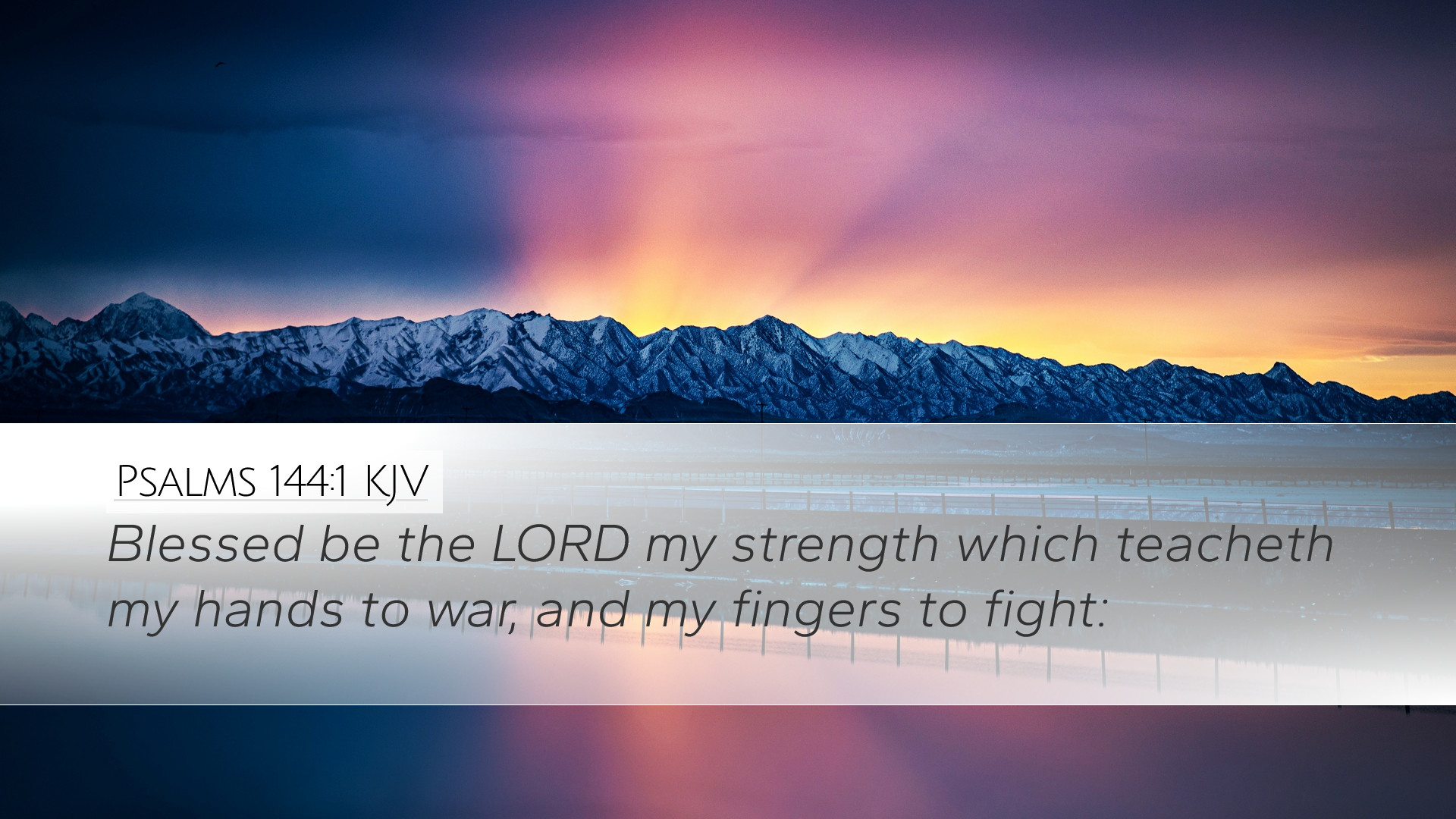Psalms 144:1 Commentary
Verse Text: "Blessed be the Lord my strength, which teacheth my hands to war, and my fingers to fight."
Introduction
The 144th Psalm is attributed to David and serves as a poignant reflection of his experiences as a warrior and king, expressing deep reliance on God for strength and guidance in battle.
Foundational Themes
- Divine Strength: David begins with a doxology, acknowledging the Lord as his strength. This recognition of God as the source of power is fundamental in Scripture, emphasizing the notion that human endeavors are futile without divine assistance.
- Teaching and Empowerment: The psalmist declares that God 'teaches' his hands to war. This indicates a process of divine instruction—God does not merely provide strength but actively trains and equips His people for the battles they face.
- Spiritual Warfare: The imagery of war is prevalent throughout the Scriptures. It serves as a metaphor for the spiritual struggles believers face. The psalm highlights the need for God’s preparation in both physical and spiritual conflicts.
Commentary Insights
Matthew Henry's Commentary
Henry emphasizes the profound sense of gratitude that David expresses in this verse. He notes that David recognizes the strength that comes from the Lord, not just for physical battles but for all forms of struggle, including moral and spiritual conflicts. Henry observes that true strength and skill are developed through God’s teaching and guidance, elucidating how a believer’s capabilities are enhanced through partnership with the divine.
Albert Barnes' Commentary
Barnes interprets the phrase "teaches my hands to war" as a metaphorical expression indicating divine preparation for the trials and tribulations of life. He suggests that this instruction is not limited to physical battles; rather, it extends to equipping oneself with wisdom and discernment in the face of adversity. Barnes highlights the importance of reliance on God's wisdom in both warfare and life’s challenges, positioning prayer and divine direction as key elements in achieving victory.
Adam Clarke's Commentary
Clarke expands on the implications of receiving instruction from the Lord. He notes that divine teaching is essential for effective leadership and conflict resolution. According to Clarke, this verse reflects a broader theological principle that God's intervention is crucial in all endeavors. Clarke also points out the contrast between human efforts and divine assistance, illustrating the futility of relying solely on one's own strength without invoking God’s help.
Practical Applications
- Reliance on God: This verse serves as a reminder to believers that true strength comes from a deep relationship with God. Pastors and leaders should instill this truth within their congregations, encouraging reliance on divine assistance in all aspects of life.
- Preparation for Life's Battles: Just as David sought God's teaching for physical warfare, Christians today must seek God's wisdom in their daily struggles. This involves prayer, study of the Scriptures, and actively applying God's teachings to personal and communal challenges.
- Worship and Thanksgiving: The psalmist's declaration is a model of worship. Leaders should cultivate a culture of gratitude within their communities, recognizing and praising God for the strength and guidance provided in times of trial.
Conclusion
Psalms 144:1 encapsulates a profound truth about the believer’s relationship with God—acknowledging His sovereignty and strength is vital in both physical and spiritual realms. The insights from classical commentaries provide depth, urging pastors, theologians, and students of the Bible to embrace a mindset of dependence on God. In doing so, they equip themselves and their communities to face life's challenges with confidence, resilience, and faith.


